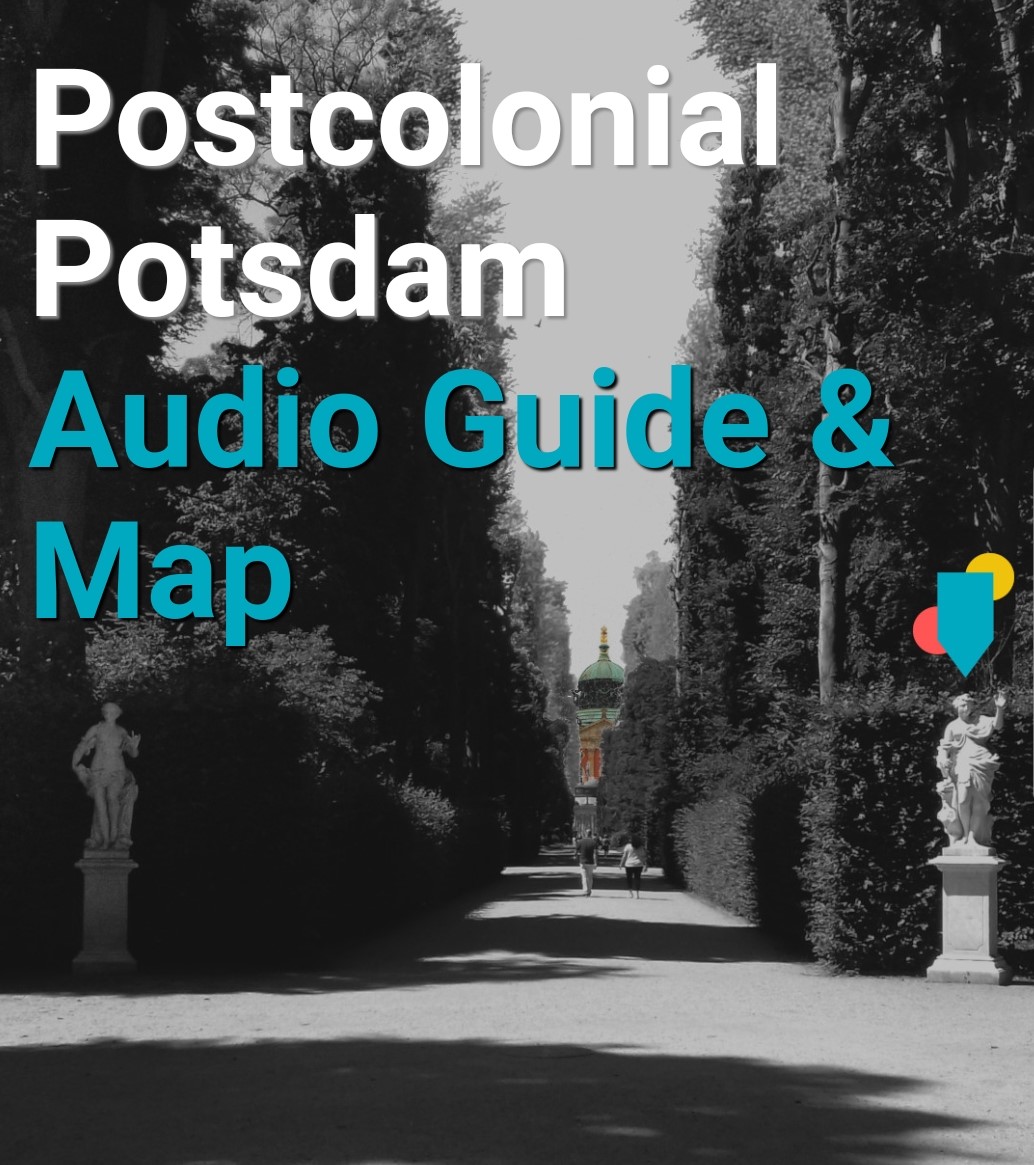
Postcolonial Potsdam: digital insights into German colonial history
In many German cities, there are groups or associations that try to draw attention to their city’s colonial entanglements. One such group is Postcolonial Potsdam. The group searched for traces of colonialism and already started to offer walking tours in Potsdam to contextualize these traces in 2014. Recently, Postcolonial Potsdam launched a web app to allow useres to access this knowledge individually at any time.
In the app it is recommended to start the tour at the New Palace in Potsdam. The corresponding audio file offers a curious story about the peak of the Kilimanjaro and how it made its way to Germany. In 1890, the enthusiastic mountaineer Hans Meyer gave a little rock, which he had collected when reaching the highest peak of the Kilimanjaro, to the German Emperor Wilhelm II. The rock symbolizes German rule over East Africa. The rock (or at least a replacement rock) is still on display in the New Palace in Potsdam.
The postcolonial audio guide does not only offer insights into colonial history on the African continent. From 1898 until the beginning of the First World War, Kiaotschou in China was considered a German colony. Between 1901 and 1919 astronomical instruments from China were exhibited at the Orangery in Potsdam. The German military had taken them after the so-called “Boxer Rebellion” during a looting in Beijing.
The historical anecdotes in the app often serve to draw conclusions for the present. For example, the app voices support for renaming squares with racist names – much like the debate in Berlin about the so-called M. Street, Wissmann Street or other streets in the African Quarter. Additionally, the app includes a number of interviews with members of Black activist groups.
It is great that this kind of knowledge is now freely available on the internet. Learn more about the work of Postcolonial Potsdam here.
